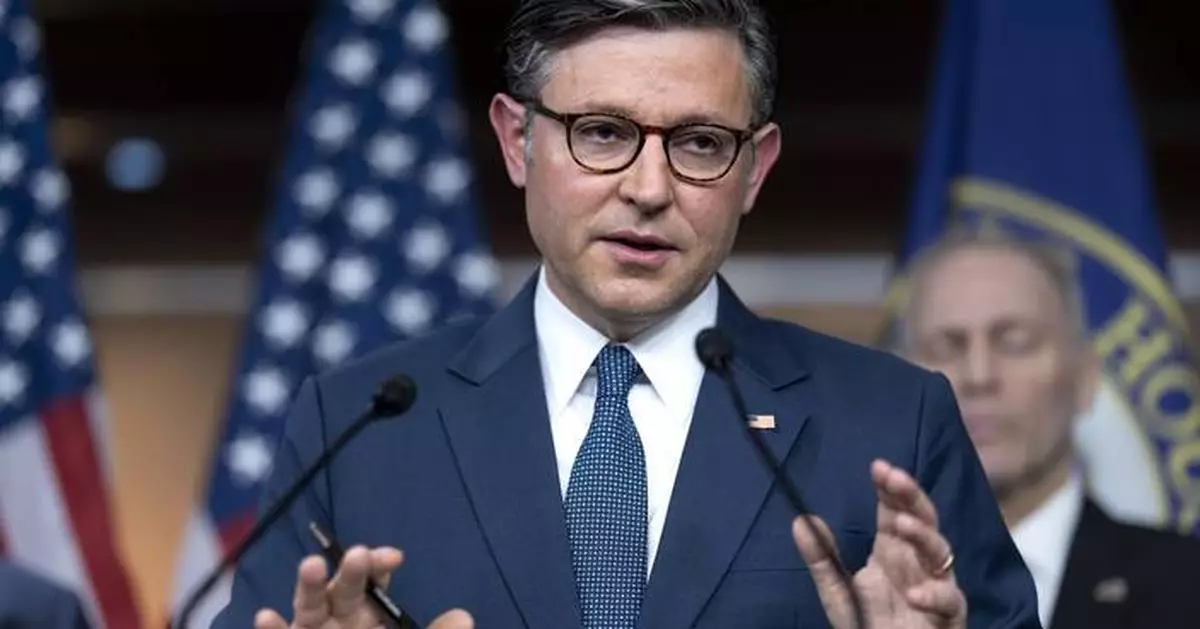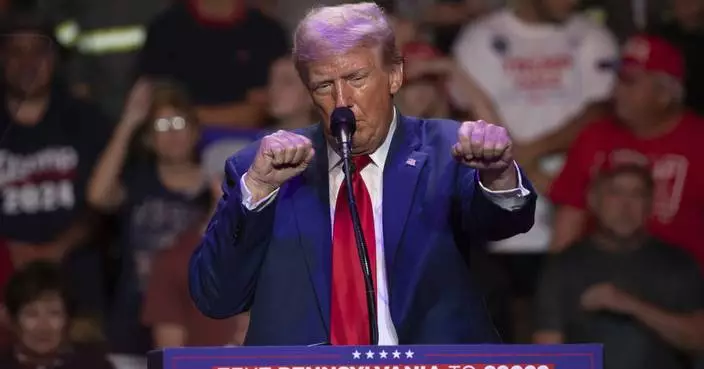WASHINGTON (AP) — Congress is expected Wednesday to give swift approval to a temporary spending bill that would keep federal agencies funded when the new fiscal year begins next Tuesday, avoiding a potential shutdown showdown just weeks before the Nov. 5 election.
The stopgap measure generally funds agencies at current levels through Dec. 20, but an additional $231 million was included to bolster the Secret Service after the two assassination attempts against Republican presidential nominee Donald Trump. Money was also added to aid with the presidential transition, among other things.
House Speaker Mike Johnson, R-La., billed the measure as doing “only what's absolutely necessary," a statement directed at members of his own conference concerned about spending levels.
Still, it's a no-go for some Republicans, forcing House GOP leadership to rely on Democratic votes to pass the bill through a process that requires at least two-thirds support from voting members. Johnson said the only alternative to the continuing resolution at this stage would be a government shutdown.
“It would be political malpractice to shut the government down," Johnson said. "I think everyone understands that.”
If the House passes the temporary funding measure as expected, it will move to the Senate for final approval. Senate Majority Leader Chuck Schumer, D-N.Y., said late Wednesday that he had reached agreement ensuring passage will happen quickly.
“This is how things should be done,” Schumer said. “Without brinkmanship, without delay.”
Lawmakers in both chambers are anxious to return to their home states and districts to campaign, smoothing the path for passage of a temporary funding fix. But more arduous fiscal negotiations await them at the end of the year.
That's because the bill essentially punts for three months a final decision on full-year spending levels. Under terms of a previous deal to avoid a federal default and allow the government to continue paying its bills, spending for defense and nondefense programs would rise 1% next year.
The Senate has charted a course to go above that level, while House Republicans have been voting for steep cuts to many nondefense programs, and they have attached policy mandates to the spending bills that Democrats overwhelmingly oppose. So a final agreement will be difficult to reach.
In the meantime, the temporary bill will mostly fund the government at current levels, with a few exceptions like the funding infusion for the Secret Service.
The $231 million for the Secret Service does come with strings attached. It's contingent upon the agency complying with congressional oversight. The bill also allows the Secret Service to spend its allocations faster if needed.
“Everybody understands that's critically important right now,” Johnson said of the Secret Service money.
In a recent letter, the Secret Service told lawmakers that a funding shortfall was not the reason for lapses in Trump’s security when a gunman climbed onto an unsecured roof on July 13 at a rally in Butler, Pennsylvania, and opened fire. But acting Secret Service Director Ronald Rowe Jr., also made clear the agency had “immediate needs” and that he’s talking to Congress.
The continuing resolution is needed because Congress is nowhere close to completing work on the dozen annual appropriations bills that fund much of the federal government. The House has passed five of the 12 bills, mostly along party lines. The Senate has passed zero.
Johnson also warned that when the Dec. 20 extension expires, he would not support a massive, catchall bill to fund the government, referred to as an omnibus, so another stopgap may be needed that would allow the new president and Congress to have the final say on fiscal year 2025 spending levels.
“I have no intention of going back to that terrible tradition,” Johnson said.
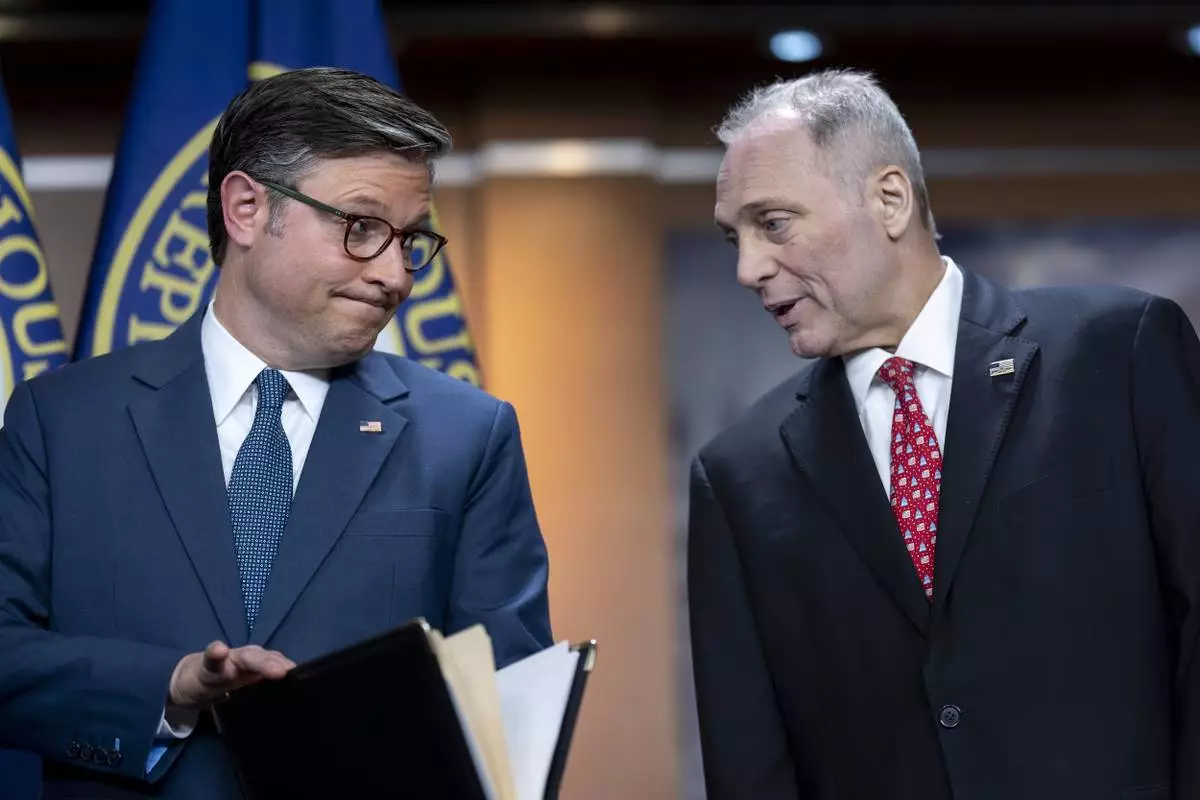
Speaker of the House Mike Johnson, R-La., left, confers with House Majority Leader Steve Scalise, R-La., as they meet with reporters after a closed-door meeting with fellow Republicans, at the Capitol in Washington, Tuesday, Sept. 24, 2024. (AP Photo/J. Scott Applewhite)
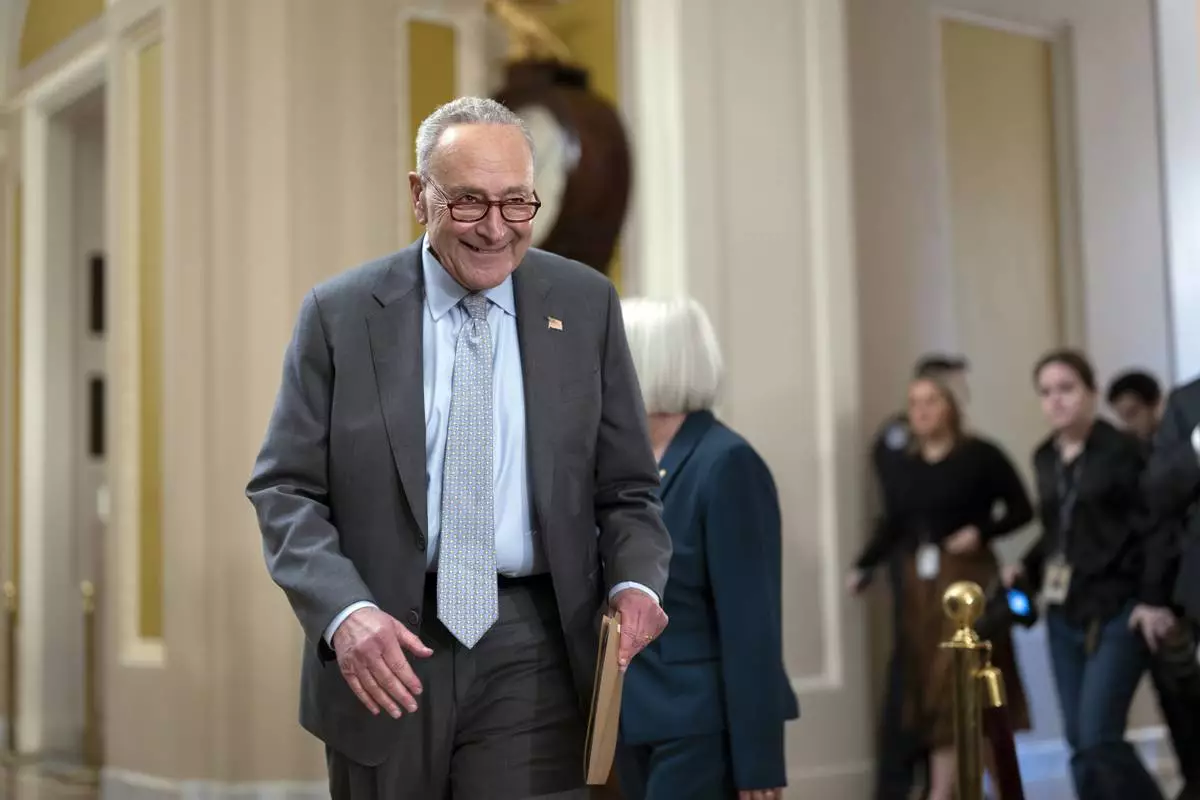
Senate Majority Leader Chuck Schumer, D-N.Y., arrives to speak to reporters after a lunch meeting, at the Capitol in Washington, Tuesday, Sept. 24, 2024. (AP Photo/J. Scott Applewhite)
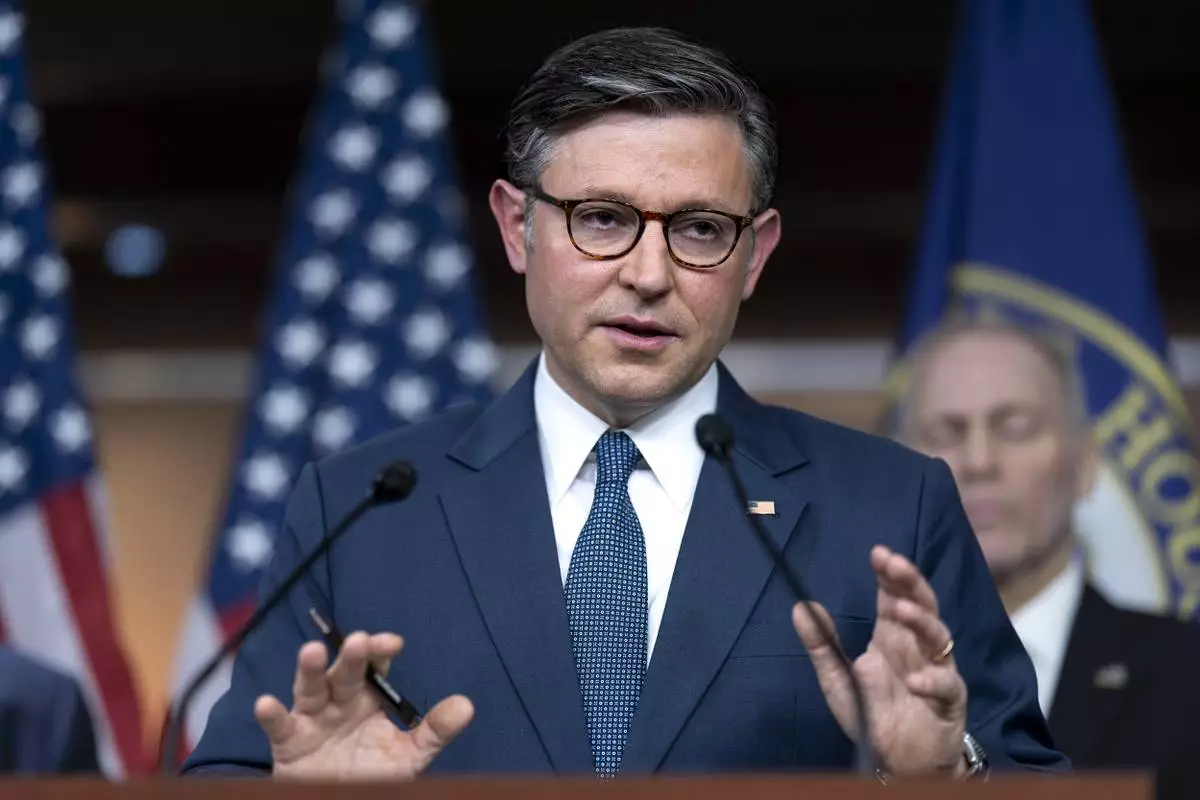
Speaker of the House Mike Johnson, R-La., meets with reporters after a closed-door caucus with fellow Republicans, at the Capitol in Washington, Tuesday, Sept. 24, 2024. Congressional leaders have a deal on a short-term spending bill that will fund federal agencies for about three months. The agreement announced Sunday averts a possible partial government shutdown when the new budget year begins Oct. 1 and pushes final decisions until after the November election. (AP Photo/J. Scott Applewhite)


